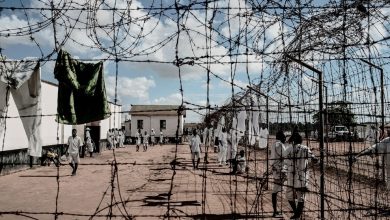Speaking for muted voices
April 8, 2021
Oftentimes, the expression voice of the voiceless has been spoken in reference to those fighting for other people’s rights. This, for some, is an understatement because, at times some people in the media, the civil society, religious circles and other sectors speak not only for the voiceless, but also for the muted voices.
There exist in our midst vulnerable people who although they have voices, their right to speak out is trodden on without regard. There are women, prisoners, children and key populations like gays, lesbians and sex workers, among others.
These thoughts come as on Wednesday lawyer Chikondi Chijozi was sworn in as a new commissioner of the Malawi Human Rights Commission (MHRC) at the Mtunthama State Lodge. She replaces former commissioner Patrick Semphere who passed away earlier this year.
During the swearing-in ceremony, President Lazarus Chakwera said there is need that human rights be not only promoted but also fought for. This is a timely message at a time the rights of the oppressed are vital.
Chijozi has been one of the lawyers speaking for muted voices. Not long ago, she was one of the lawyers representing four women who were allegedly abused by former Malawi Broadcasting Corporation (MBC) director general Aubrey Sumbuleta. MHRC recommended that the Malawi Police Service institutes criminal investigations against Sumbuleta under the Gender Equality Act (GEA) which he allegedly contravened through his actions.
As deputy director of the Centre for Human Rights Education, Advice and Assistance (Chreaa) Chijozi has been involved in cases that have seen the dumping of some poverty laws, colonial laws that were set to target poor indigenous Malawians.
In 2015, Mayeso Gwanda a plastic bag vendor was walking from his home in Chilomoni to ply his trade at Limbe Market in Blantyre during the wee hours. It was while he was passing by the Chichiri Roundabout that police officers rounded him up, and stopped a passing car to take him to the station where rogue and vagabond charges were laid. That such vagrancy laws target the poor is seen here, that a man who was walking to his business is arrested at one spot, yet another man who is driving by the same spot at that same time committed no crime in the eyes of the police.
The matter was taken to a Constitutional Court with Chijozi and others arguing the vagrancy laws were unconstitutional as they infringed several of people’s rights including the right to economic activity, freedom of movement and association, among others. In the end, the Constitutional Court ruled that rogue and vagabond charges are unconstitutional.
In another case, Chijozi represented Elledi Phiri, whose brother Abyuti Phiri died in prison due to malnutrition. Phiri entered Maula Prison weighing 66 kilogrammes (kg), but he died at Kamuzu Central Hospital weighing just 42.6 kilogrammes. The case typified the harsh reality of malnutrition in prisons, where prisoners are given one meal a day.
One could go on to look at how she fought for Rasta children to still go to school in their dreadlocks, how she represented abused sex workers in Mwanza and other cases, but the point is Chijozi joins a team of rights defenders who are relentless in the fight for the people.
The hope is the fire will not die down, as this is the time we need protection of human rights the most. We have already heard of journalists being questioned by police for simply doing their reportage. It can only get worse.
The hope is that bodies like MHRC will continue speaking for the muted voices. While we are at it, isn’t it time the commission investigated how far the Teachers Union of Malawi (TUM) and government stand-off has infringed on children’s right to education? It can only get worse.


